A slow tour along the Po river. With 10 must-sees stops from Piacenza to Reggio Emilia.
Have you ever come back from a holiday feeling more exhausted than when you left?
The answer to burn-out tourism can be a slow tour along the River Po.
Especially on the right bank in Emilia Romagna, where the landscape is so peaceful and relaxing.
The Po is the longest river in Italy.
You can discover this natural waterway during a “no hurry-no fuss” weekend.
You will travel through the quiet Emilian countryside, among rows of poplar trees, bell towers of small churches, the geometric line of the main banks, charming old villages, friendly people.
The itinerary includes 10 “must see” stops (among the many, to be honest).
You can travel by car (in low gear, enjoying the scenery outside the window), by bike or even on foot (if you have more time).
What will you see? From Piacenza to Reggio Emilia, river villages, hidden white beaches, romantic castles, and protected natural areas. And plenty of opportunities to split your journey.
Piacenza | The ford of Sigerico
In the small town of Calendasco you can see the place where the ancient European pilgrims crossed the river Po to continue their journey to Rome. This was the only river crossing on the medieval Via Francigena.
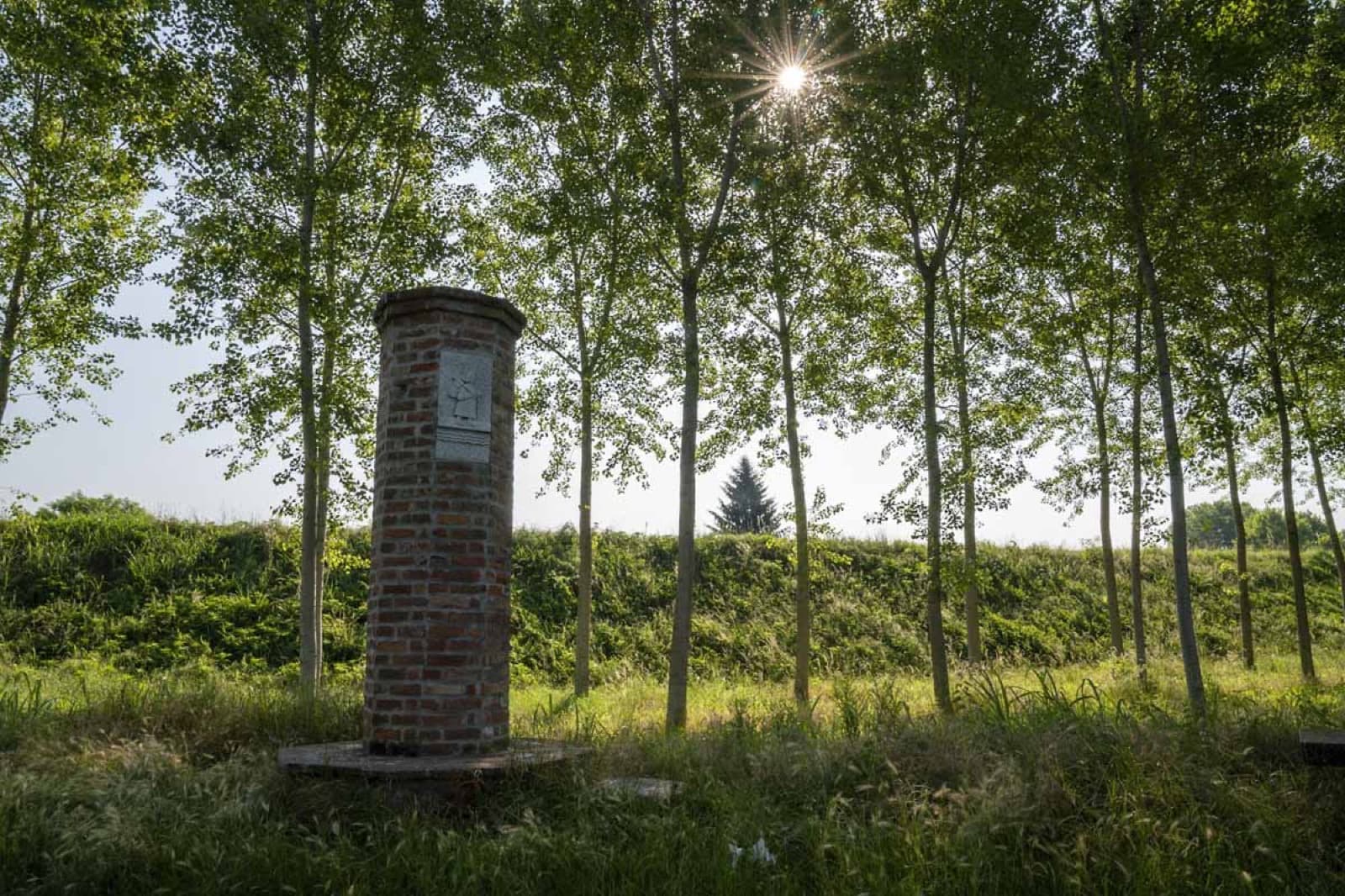
The ford is in the hamlet of Soprarivo. Once here, you can’t resist taking a selfie next to the stele (a small stone column) that commemorates the time when Sigerico, the Bishop of Canterbury, waded across the Po in 990.
Would you believe that you can still have the same experience today? In Soprarivo there is a ferry service from one side of the Po to the other.
Caorso (PC) | Protected Natural area Isola de Pinedo
→ 27 km from previous stage
Continue along the Piacenza bank of the river until you come to Isola de Pinedo.
It is a hidden place, like a jewel. To get there, you can start from the hamlet of Zerbio in the municipality of Caorso (13 km from Piacenza).
After a short drive, you will have to park your car, because the last stretch is only accessible on foot.
This is how you get to this quiet, protected area. The Isola de Pinedo is located in an abandoned arm of the river.
Over time, it has become a natural wetland, and today it is an absolutely enchanting sight: willows, reeds, ancient oaks, freshwater mirrors, herons and gulls. The realm of bird watching.
Busseto (PR)
→ 18 km from previous stage
Everyone has probably heard of Busseto because it is the birthplace of Giuseppe Verdi (1813-1901), the world’s most famous opera composer.
No wonder, then, that everything in the town is dedicated to the Maestro: from the bronze statue in the main square to the historic theatre and the Casa Barezzi museum.
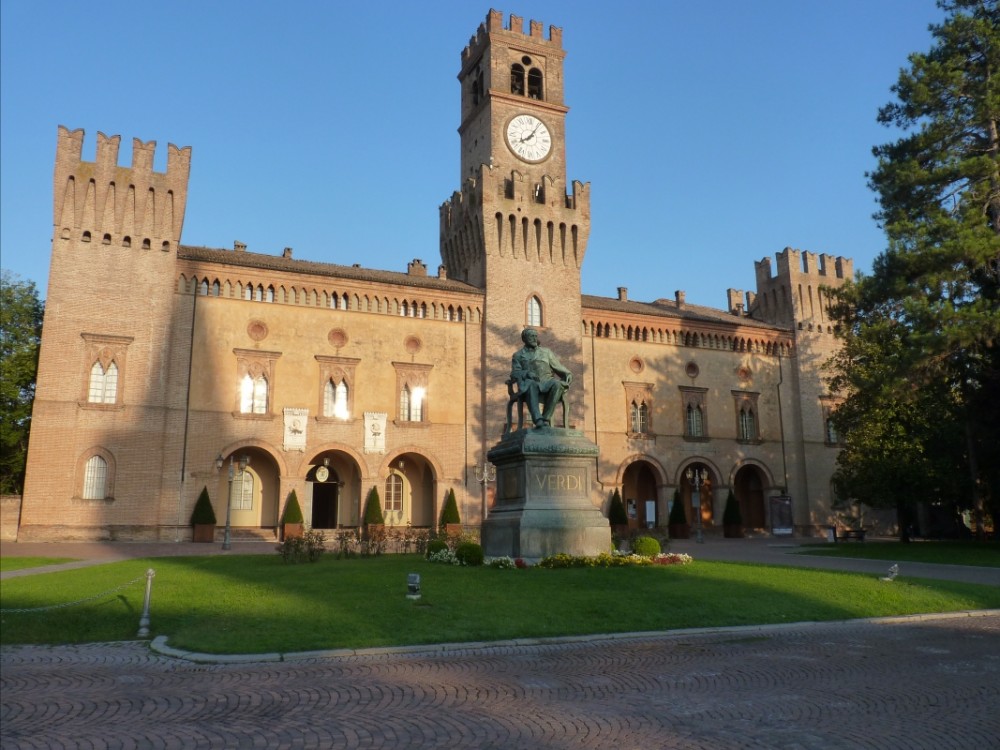
The villa where little Giuseppe was born still exists and can be visited: it is in the hamlet of Roncole.
In any case, Busseto is a charming historical town well worth a visit.
Suffice it to say that it has been awarded the Orange Flag by the Italian Touring Club.
(The Orange Flag is a tourist quality mark awarded to small towns in the hinterland that stand out for the quality of their services and hospitality).
Polesine Parmense (PR)
→ 6.3 km from previous stage
It’s not every day that you see a fortified castle (1320) between the water and the trees on the banks of the Po. For this reason, Polesine Parmense is worth a stop to enjoy a unique view of the river landscape.
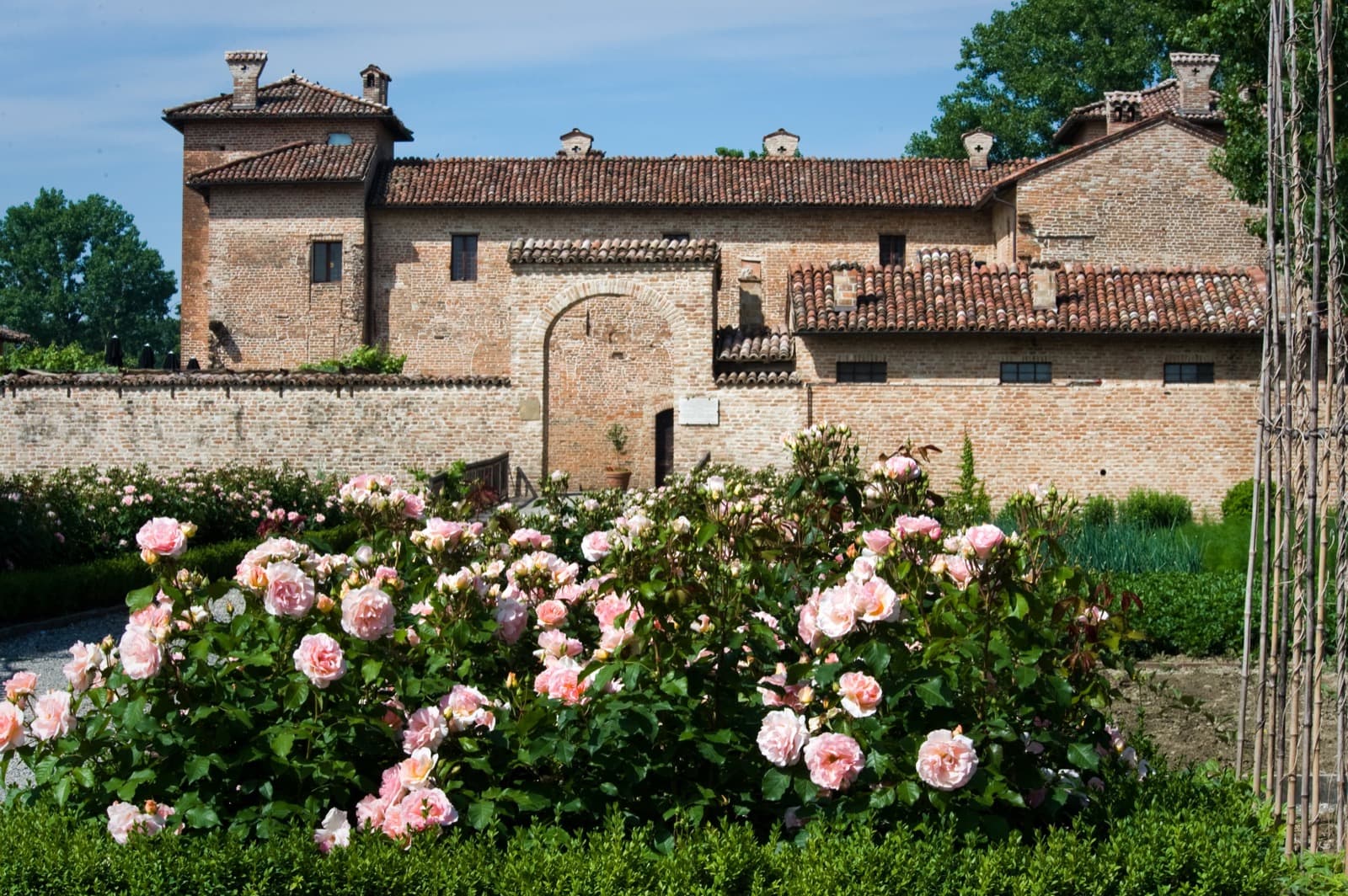
This is the world of star chef Massimo Spigaroli and his Antica Corte Pallavicina restaurant (1 Michelin star). Here you can learn how to make pasta and salumi.
Take a guided tour of the castle and farm. Smell the aromas of salumi at the Culatello Museum.
Outside, peacocks roam the garden, while ancient breeds such as the black pigs graze nearby.
Roccabianca Castle (PR)
→ 11 km from previous stage
Your journey along the river will now take you to another castle: Roccabianca. And since, as you know, every castle has a romantic story to tell, Roccabianca has a special one.
The castle was built in the mid-1400s by the nobleman Pier Maria Rossi: it was a gift for his beautiful and beloved noblewoman Bianca Pellegrini. Hence the name Roccabianca.
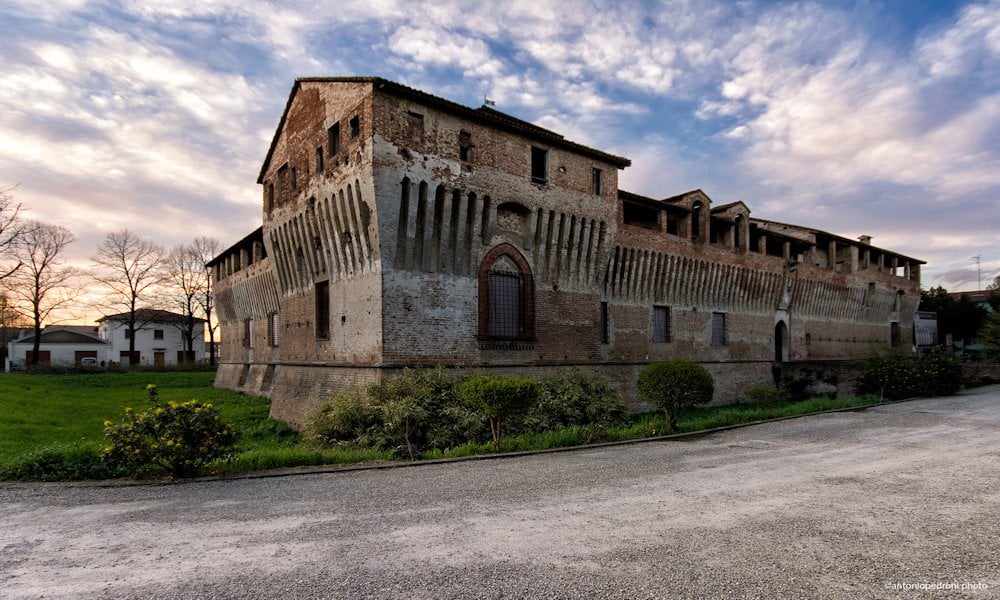
Theirs was a truly passionate love that lasted a lifetime. The story of their love ran parallel to the official wedding (decreed for political reasons) between him and Antonia Torelli.
Loyalty, love, devotion, and patience are the virtues depicted in the cycles frescoed inside the building. Roccabianca was called the castle of lovers.
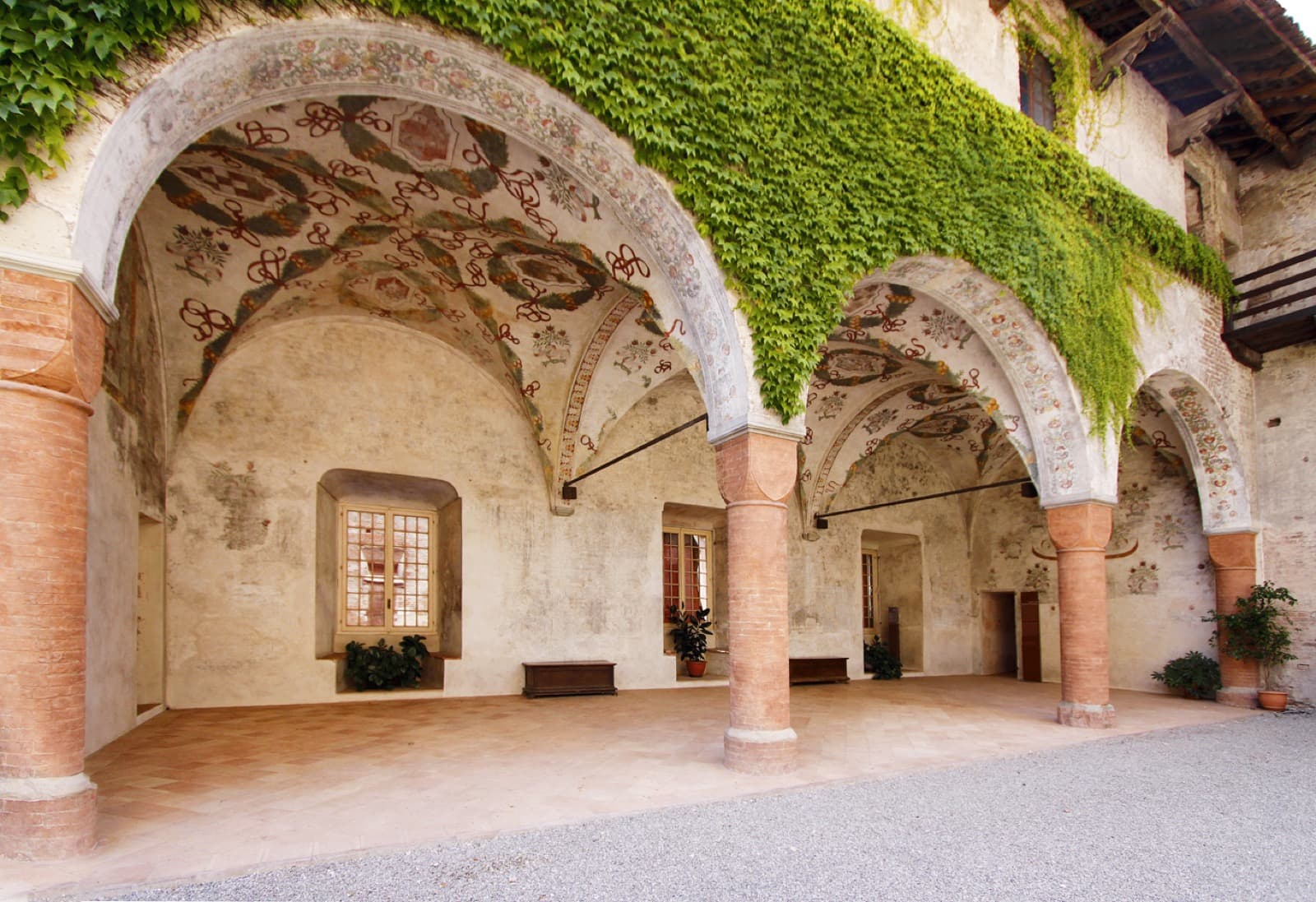
Rare liqueurs, spirits and balsamic vinegar are also produced here: they are on display in the Distillery Museum in the old cellars.
Just 10 kilometers inland, there is another manor owned by the same Rossi family: the Renaissance Castle of San Secondo.
Colorno (PR)
→ 18 km from previous stage
There is a reason why the Royal Palace of Colorno (early eighteenth century) – just outside Parma – is called “The Little Versailles”. If you are wondering which one it is, just go there and you will understand in a second.
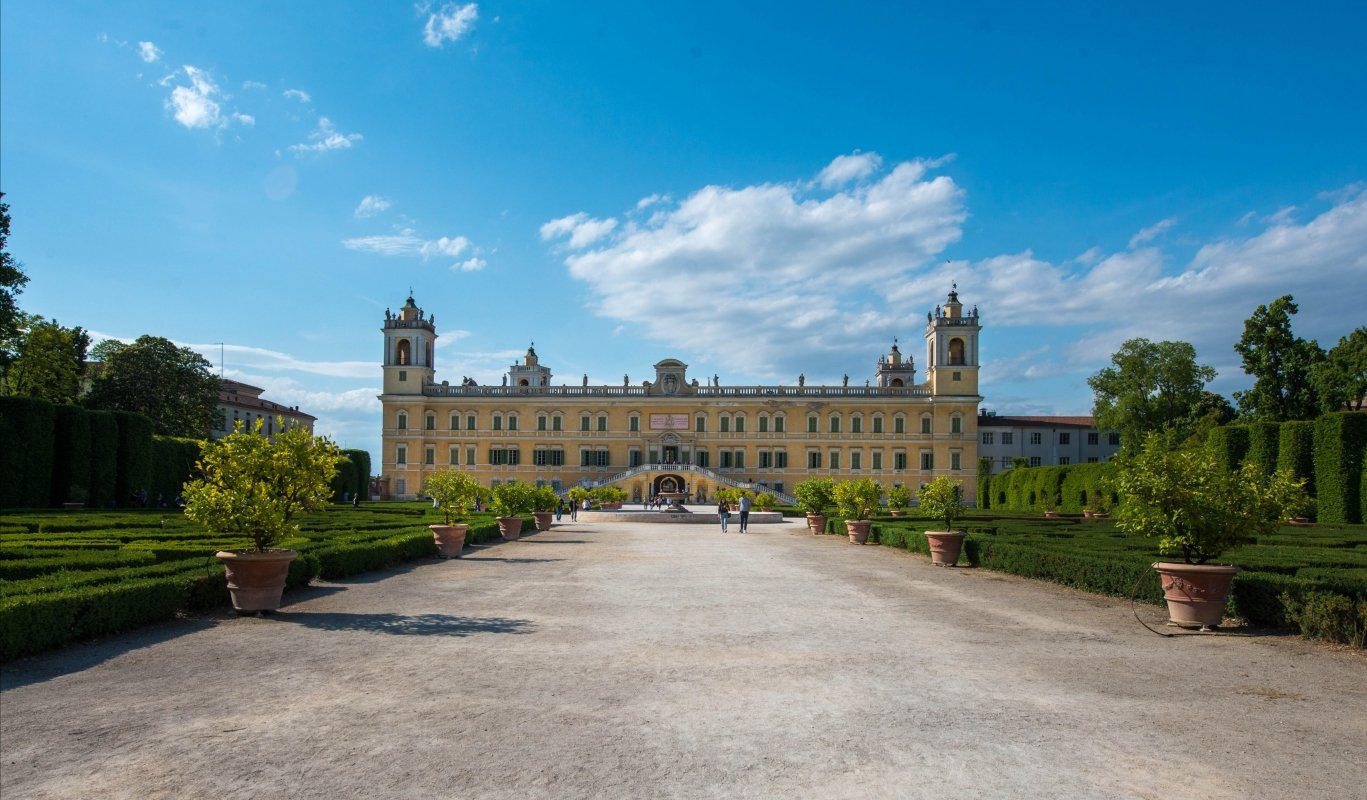
It was the magnificent palace of Maria Luigia of Austria (ex-wife of Napoleon), Duchess of Parma, Piacenza and Guastalla.
Baroque style, over 400 rooms, frescoes, courtyards, staircases and fountains.
It is also home to the Alma school of haute cuisine.
Brescello (RE)
→ 16 km from previous stage
The village of Brescello is the setting for the popular films Peppone and Don Camillo, the beloved characters of the Italian writer Giovannino Guareschi.
The story is about a pugnacious village priest whose confrontation with his adversary, the local communist mayor Peppone, creates humorous short stories.
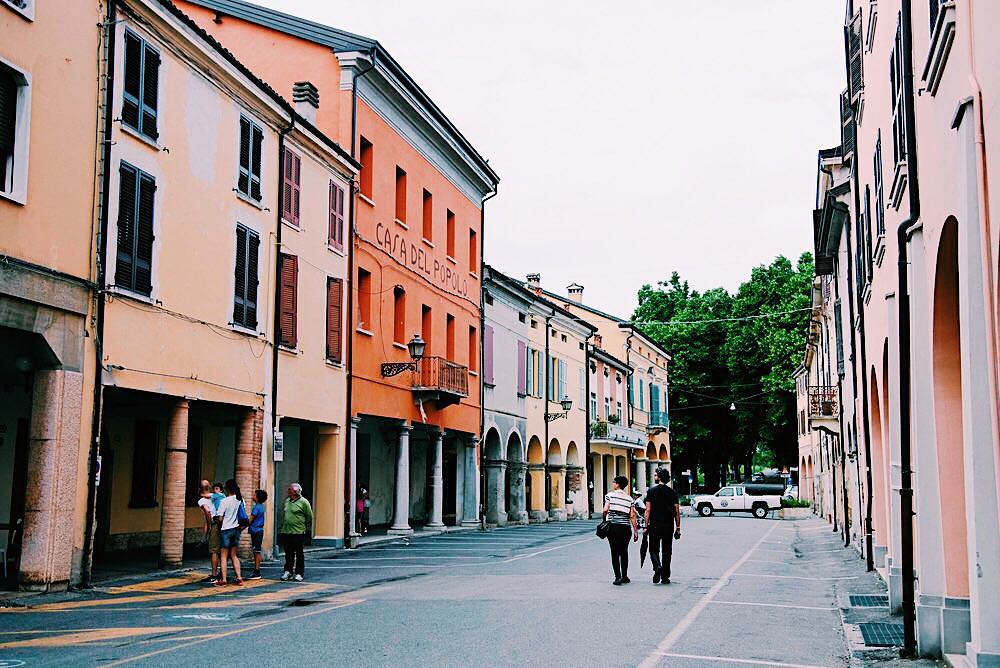
The writer Giovannino Guareschi used to say that Brescello is a small world of warm people, good food and river landscapes.
The Don Camillo and Peppone Museum exhibits many curiosities.
Boretto (RE)
→ 4.7 km from previous stage
A beautiful river port is the next stop on your tour. The village is Boretto: its port has been very important since Roman times. Cruises, boats and motorboats (such as Padus and Stradivari) leave from here.
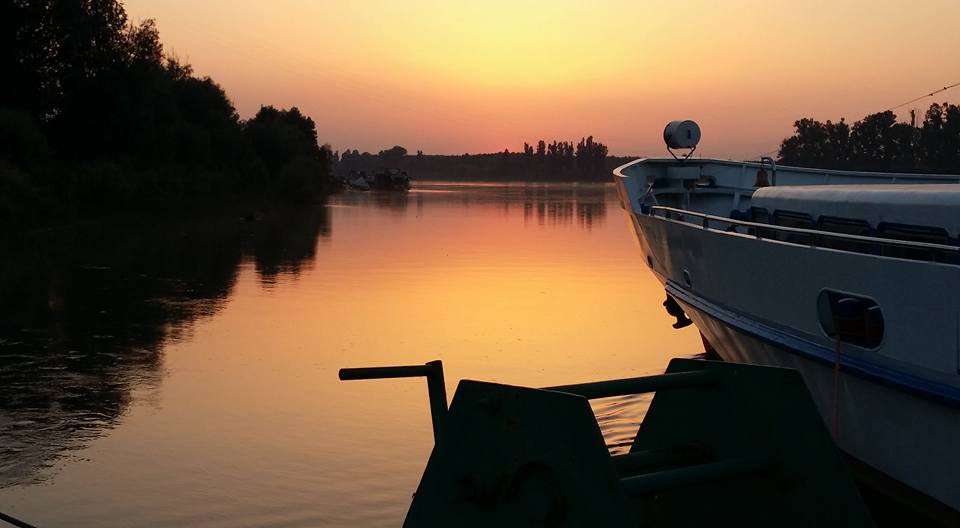
You can take your bike on board, get off at the village of Guastalla and return to Boretto along the cycle path that runs along the river, surrounded by water, woods and reeds (11 km long). Bikes and MTBs can be hired in Boretto.
Gualtieri (RE)
→ 7.1 km from previous stage
Gualtieri is another noble village on the coast. You can walk among rows of poplar trees and smell the aroma of fried dumplings and soft salami.
The most amazing sight is Piazza Bentivoglio, surrounded by a series of porticoes.
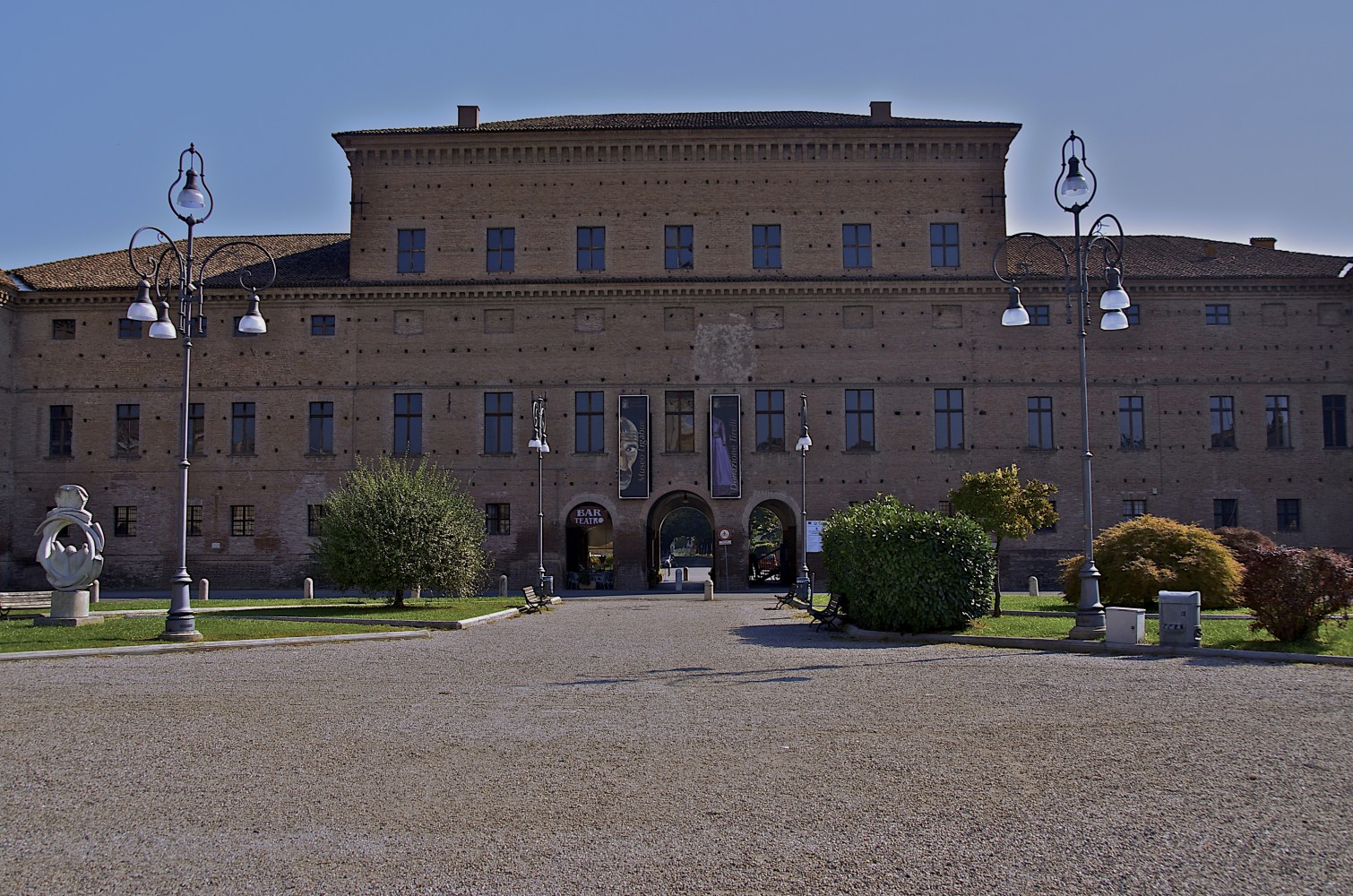
Visit the Museum dedicated to the naive painter Antonio Ligabue, with his colorful paintings populated by fantastic animals.
About 5 km away, in the hamlet of Santa Vittoria, there is a curious building: the XVII century Palazzo Greppi. It has a façade 145 metres long that runs along the road.
Guastalla (RE)
→ 3.5 km from previous stage
The glorious past of the small town of Guastalla is still alive in its buildings, churches and porticoes.
Guastalla was the seat of the Gonzaga dynasty between 1575 and 1630.
The protagonists of the square are the statue of Ferrante Gonzaga and the sixteenth-century cathedral, recently illuminated by a new sophisticated lighting system.
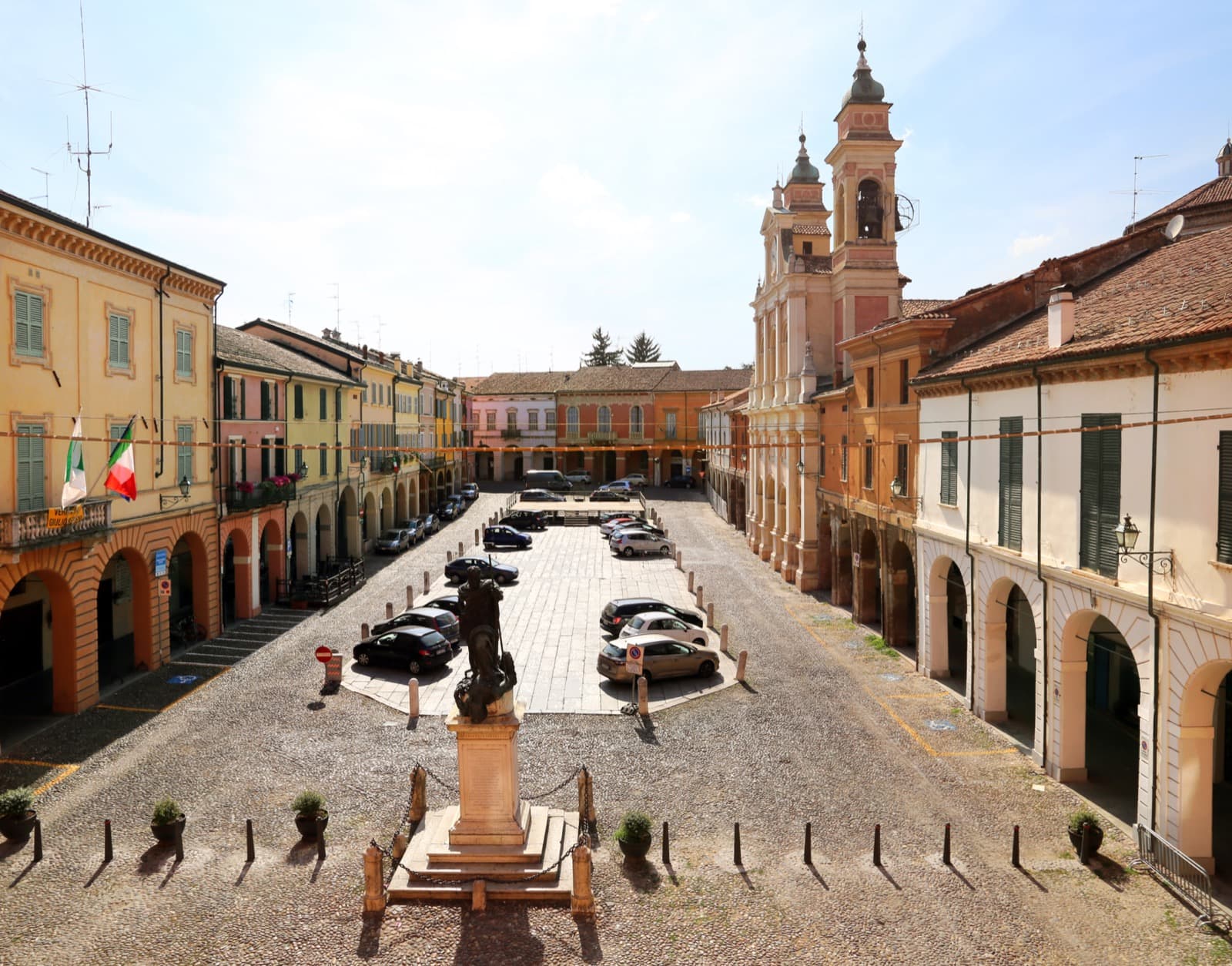
In summer, the Lido Po, the beach by the river, is a popular destination.
From Guastalla you can easily reach Luzzara by bike (2 km flat), the town of the scenographer, writer, poet and painter Cesare Zavattini (1902-1989).
Here you will find the National Museum of the Naive Arts, housed in the 15th century convent of the Augustinian monks.
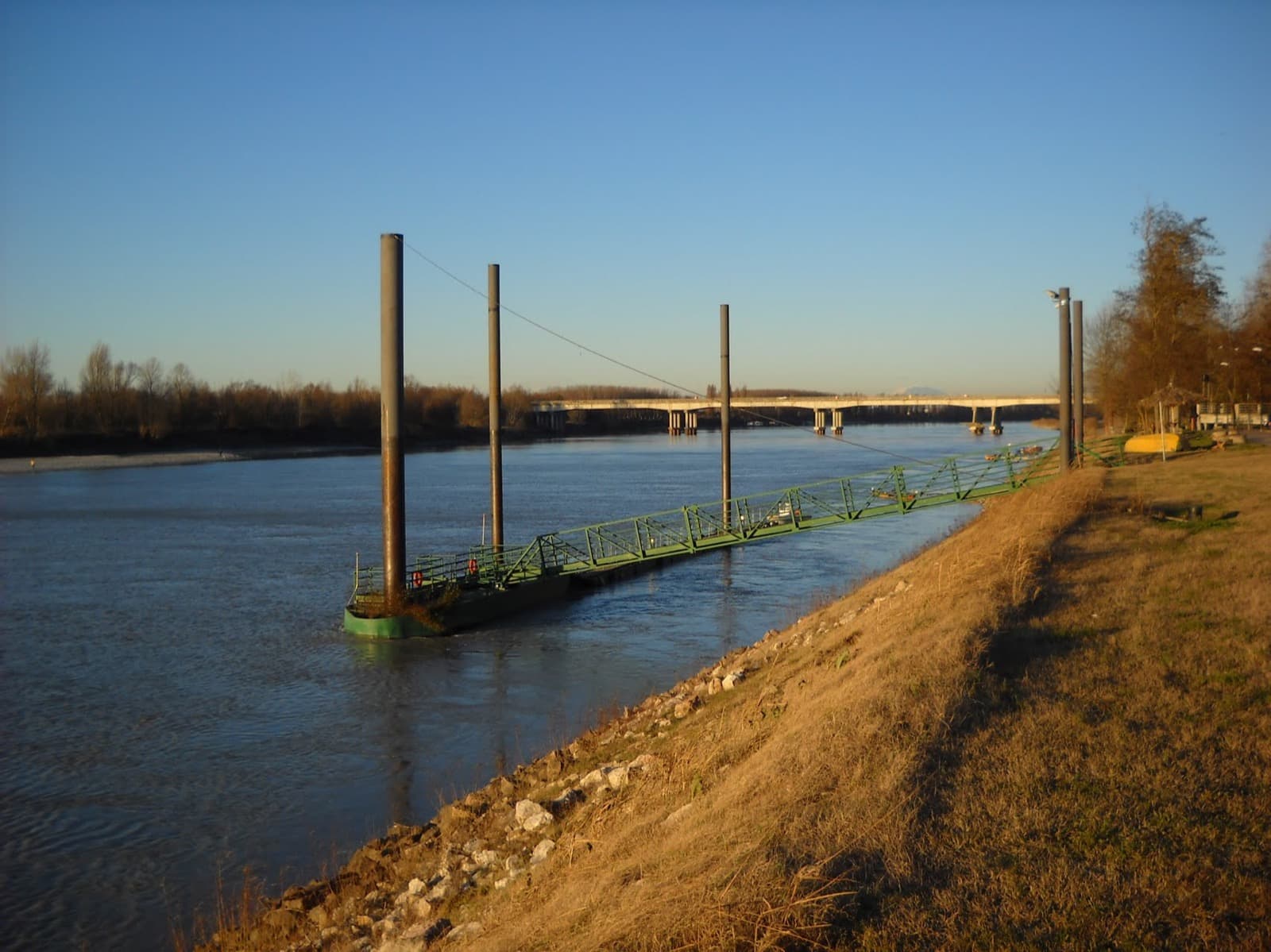
What can foodies taste on this trip?
In Piacenza
Don’t go home without trying “Pisarei e Faso”. Pisarei e Faso literally means dumplings with beans. Only a few other ingredients are added: tomato sauce, onion or garlic for the soffritto and lard or bacon. It is served very hot.
If you want to eat like a local, ask for “Stracott”, a horse or beef stew.
You will also be able to taste many labelled salamis of the highest quality, coppa, pancetta and salami.
Along the Po river there are small restaurants that cook river fish.
In Parma
The flavours of the villages along the Po river are those of ancient traditions, soups, good meat, excellent recipes and many cold cuts, even rare ones, such as the Strolghino or the Spalla of San Secondo, as well as Culatello and Parma ham.
The fried cake is not a dessert, but the Parma version of fried dumplings.
In Busseto, a true masterpiece is the nougat cake: short pastry with almonds and chocolate.
In Reggio Emilia
Cappelletti or Caplét are the festive dish of every family.
In the Guastalla area you can enjoy a special delicacy: risotto al Lambrusco (rice cooked in Lambrusco wine).
Erbazzone is a pastry filled with herbs and cheese, available in every shop. Cold meats are soft and tasty, eaten with hot fried dumplings.
Try Parmigiano Reggiano cheese with a few drops of the precious traditional balsamic vinegar of Reggio Emilia Dop, aged in wooden barrels for 20, 30 or even 50 years.
The wine? Lambrusco.
Author
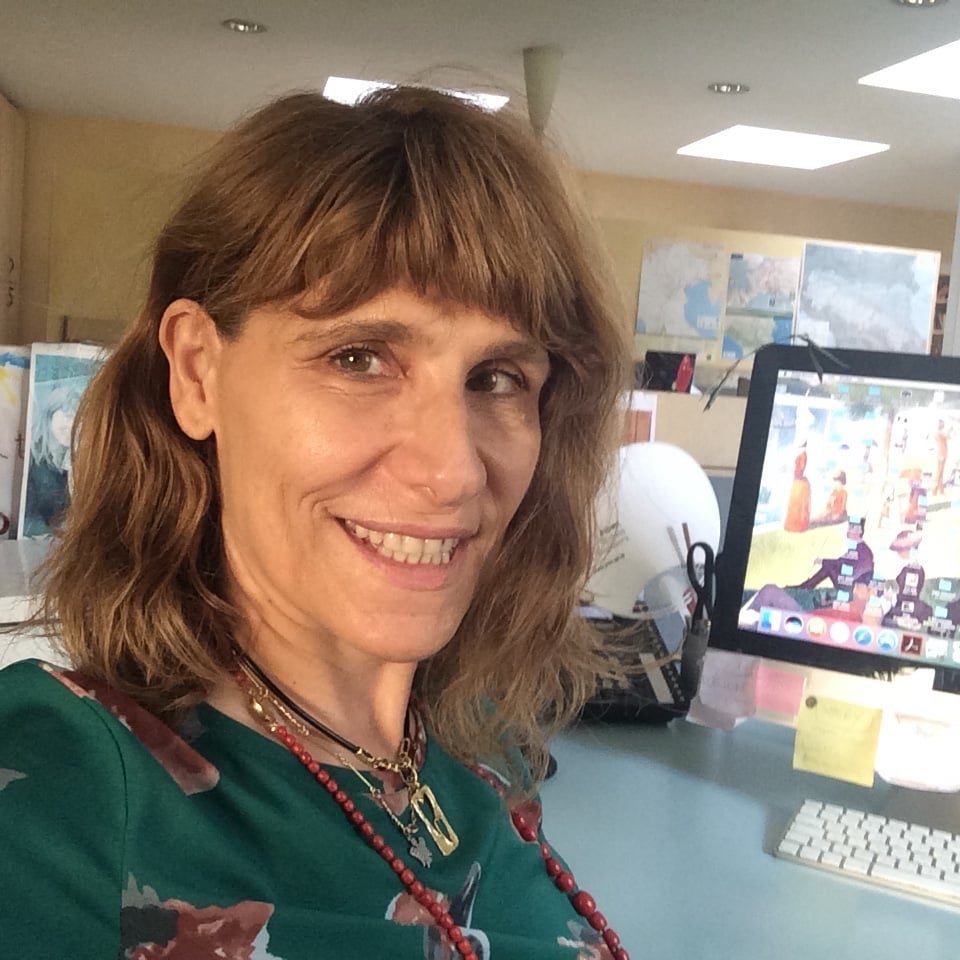
Daniela Camboni
Journalist and mum.
Traveller. I adore happy endings.
You may also like
The most beautiful Italian Villages in Emilia-Romagna
by Elisa Mazzini /// November 26, 2024

Interested in our newsletter?
Every first of the month, an email (in Italian) with selected contents and upcoming events.
Breathtaking landscapes in Emilia… and where to find them
by Davide Marino /// July 9, 2019
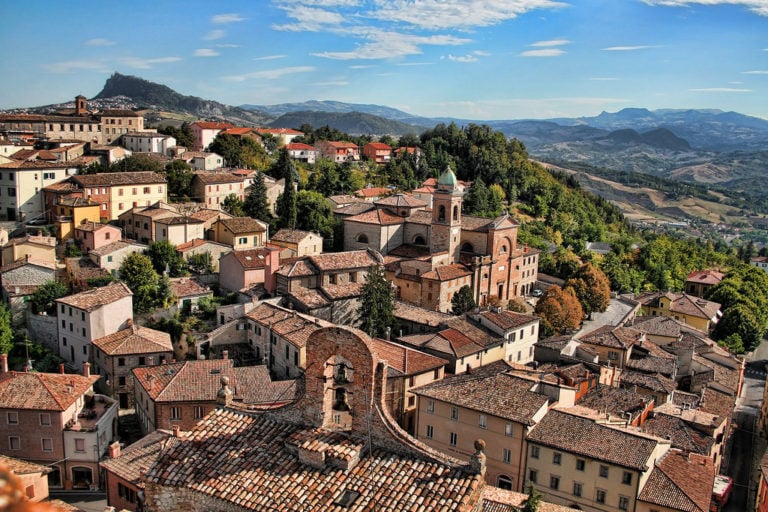
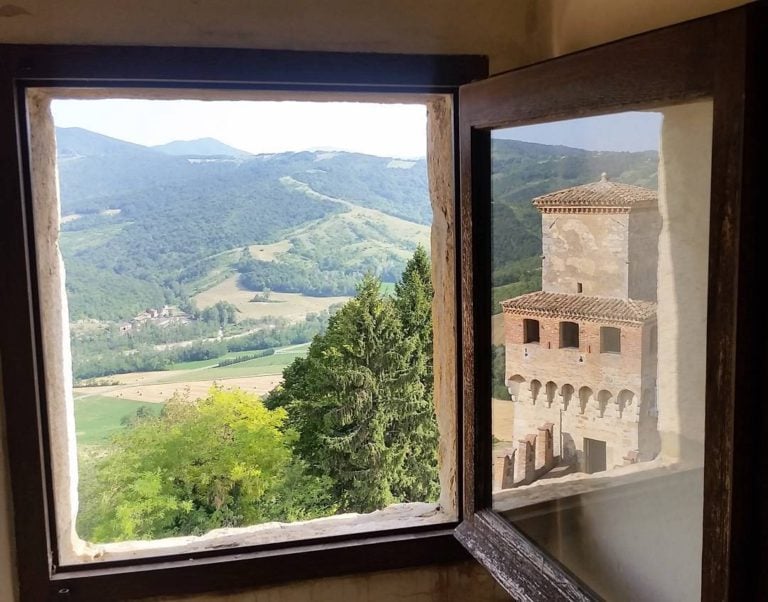
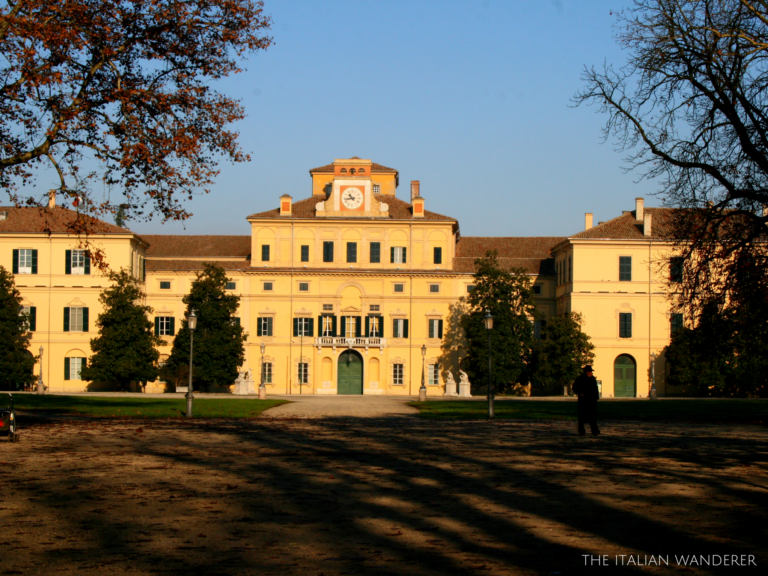
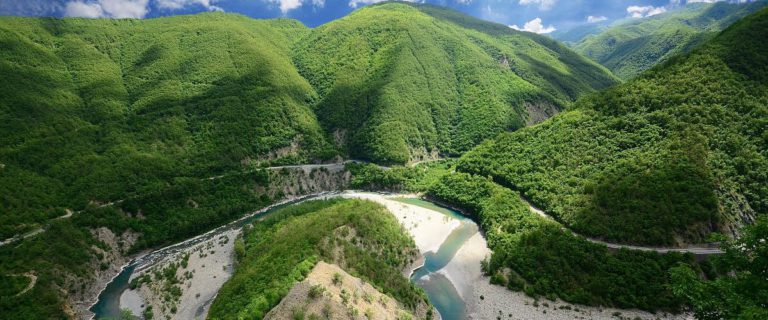
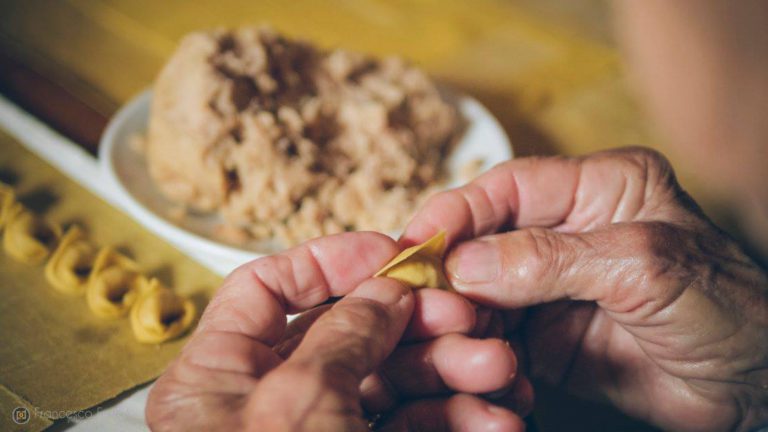
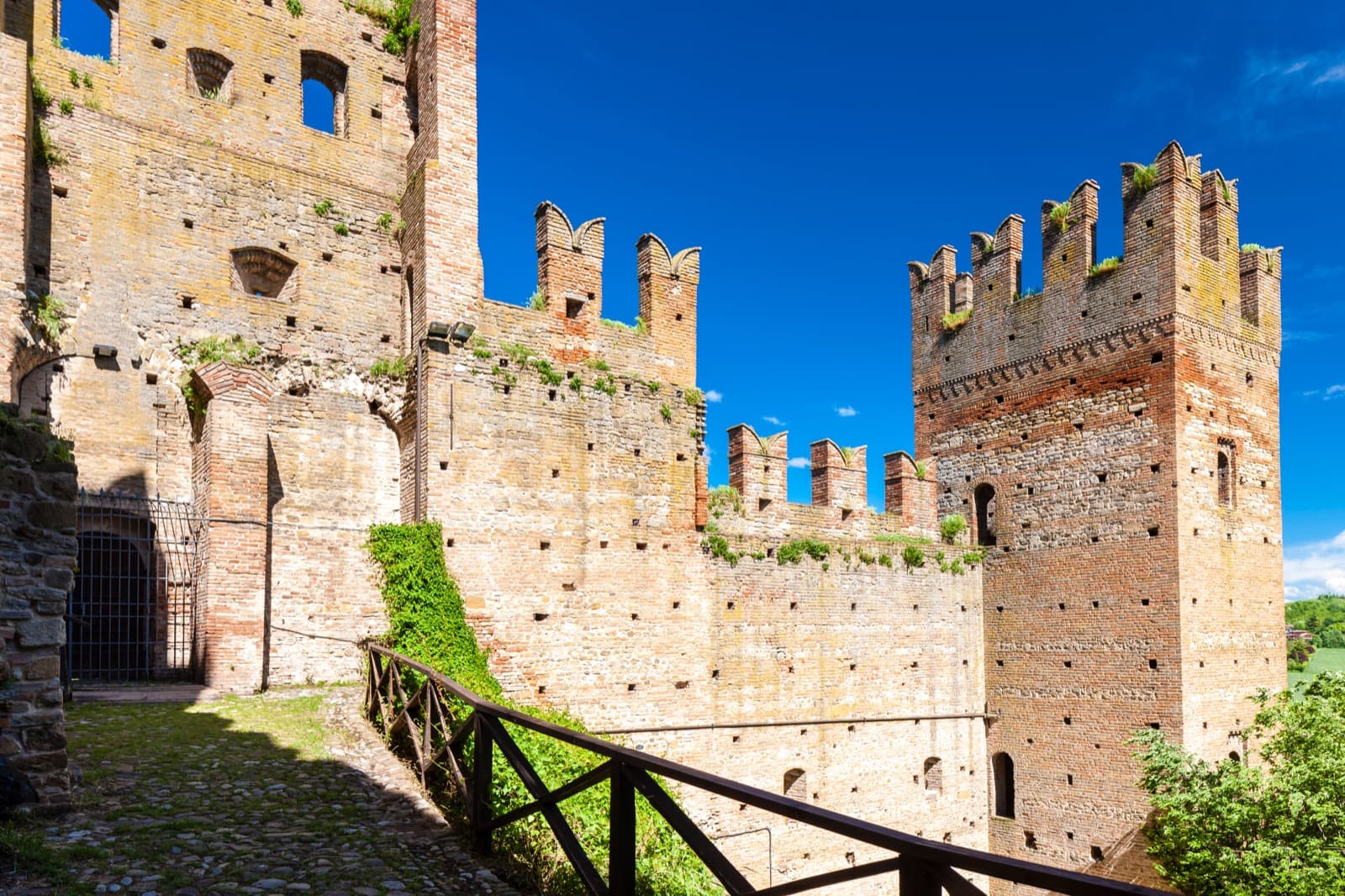
WILLIAM WILSON
Based in Ferrara, I have some great memories of cycling along the Po. Some fascinating cities, towns and villages along the way. Not to mention the Ferrara to delta 100km night ride 2017. Salve!!